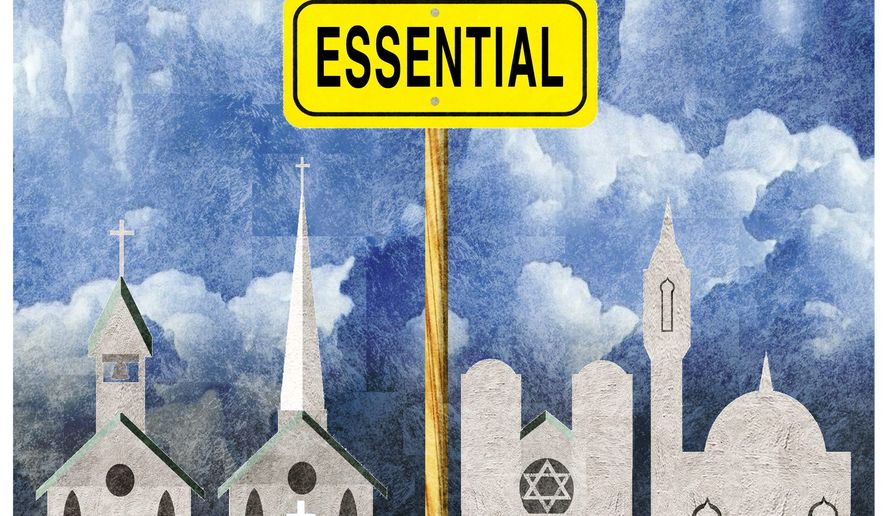OPINION:
This year’s observance of Memorial Day had a wider focus than usual. Along with honoring the sacrifices of those who gave their lives in service to the nation, it underscored questions about the liberty for which those sacrifices were made.
Religious liberty, in particular, has become an issue, in light of the physical restrictions we’ve endured during the great COVID-19 lockdown. All these weeks we’ve been called upon to balance our freedom to worship with our responsibilities as members of society to reduce the risk of spreading disease.
The understanding of how to strike that balance has required closing churches and other houses of worship. Believers have accepted this as a reasonable protection of the public health — at least they accepted it in the early days of the pandemic when little was known about the scope and virulence of this contagion.
With the passage of time and greater clarity about the numbers of actual COVID-19 infections, they’ve begun to resist the limitations imposed by states. Demands for restoration of public worship have grown, putting religious leaders in a tough spot. They want to give Caesar his due, even as parishioners are beating on the church doors.
The conflict has had a positive aspect, however. It’s drawn attention to the real meaning of religious liberty, which of course, is one of the guarantees made by the First Amendment.
In our highly secularized society, a lot of people assume that the U.S. Constitution protects religious liberty so that people are free to seek spiritual fulfillment in whatever way satisfies their consciences. This accords conveniently with the view of non-believers that they’re best fulfilled by not having anything to do with religion at all.
But while spiritual fulfillment is important, the actual reason religion enjoys constitutional protection is because people of faith feel themselves under an obligation to worship God, and government must not impede their ability to do so. The right exists because of the commitment. Whatever benefits individual spirits may derive are secondary.
This is the understanding of faith on which the nation’s Founders — men steeped in scriptural familiarity and the undisputed Christian culture of their time — based the Constitution. It’s the liberty for which so many of our fellow Americans have fought and died. And it’s the reason we must reopen the churches.
People realize that we’re not out of the woods, in terms of health risk. They’ll accept reduced attendance, face masks and social distancing. Pastors will accept the need for more services to compensate for fewer bodies in the pews (they may not be happy about the extra demands on their time and effort, but they’ll accept them).
What has never been acceptable is the notion that religious practice is a non-essential activity. Reaction against that assumption is what has prompted some believers not only to defy state restrictions, but to unwisely disregard reasonable anti-infection measures.
It’s clear that we can’t jump back into our familiar ways of worshipping. But we must be free to worship. Governments must understand this, and work with religious leaders to establish safe ways for believers to meet their obligations to God.
Not to do so demeans the liberty for which so many have sacrificed so much.
• Rev. Michael P. Orsi, a priest of the Diocese of Camden, New Jersey, currently serves as parochial vicar at St. Agnes Parish in Naples, Florida. He is host of “Action for Life TV,” a weekly cable television series devoted to pro-life issues, and his writings appear in numerous publications and online journals.




Please read our comment policy before commenting.